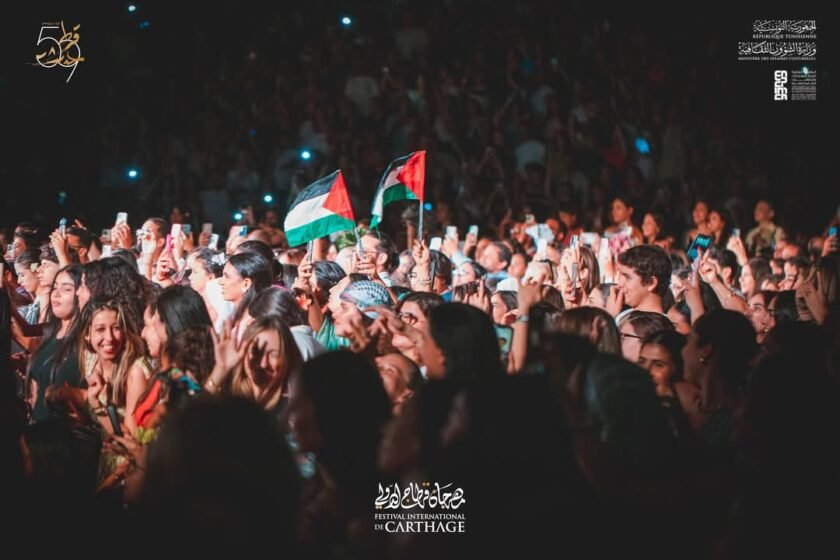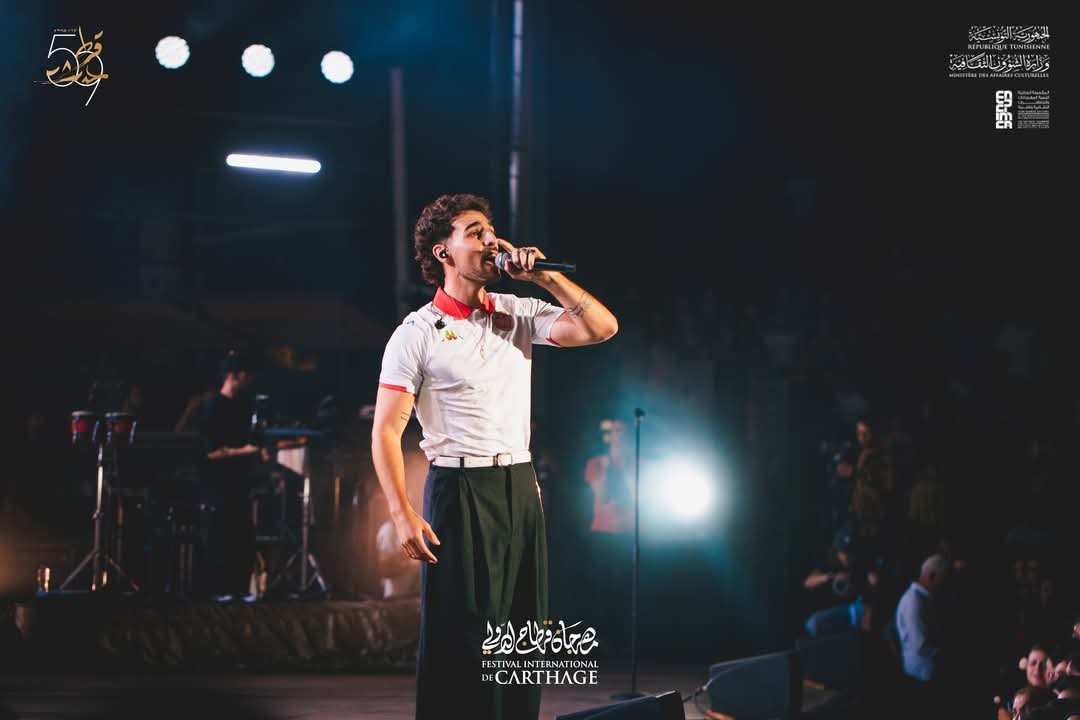The ancient Roman amphitheatre of Carthage lit up on the night of August 5 as Palestinian artist Saint Levant delivered a powerful and emotionally charged performance at the 59th edition of the Carthage International Festival. With a mix of music, dance, activism, and surprise appearances, the artist—born Marwan Abdelhamid—offered the Tunisian audience more than just a concert: he delivered a message of cultural pride, resistance, and unity.
Backed by a dynamic crew of musicians and dancers, Saint Levant took the stage with fan-favorite tracks such as On This Land, Daloona, Forgive Me, Galbi, Exile, Deira, and Kalamantina. Each song blended Arabic, French, and English lyrics with beats that fused traditional rhythms and modern flair, creating an atmosphere both festive and reflective.
True to his reputation as a voice for Palestine’s youth, Saint Levant also used the stage to speak directly to the audience about identity, belonging, and resistance. “My name is Marwan. I grew up in Gaza. I am proud because you support me as a Palestinian. Your voice matters—don’t forget us. Help make ours heard,” he said to a wave of cheers and applause.
One of the night’s emotional highlights came when Saint Levant introduced his new, unreleased track Ya Sabah El Ward, performed live for the very first time in Carthage, offering the festival crowd an exclusive experience.
But the most heartfelt moment of the evening came in response to chants from the audience calling for “Mabrouka”—a beloved Tunisian figure closely associated with the artist. After a brief delay, Saint Levant invited her on stage. Welcomed with thunderous applause, Mabrouka, whom fans affectionately consider a second mother to the artist, greeted the crowd warmly. Her appearance was a touching tribute to the strong bonds Saint Levant has forged with his Tunisian fanbase.

The evening wasn’t only about the music. The stands were awash with Palestinian flags, and long before the artist took the stage, chants in solidarity with Palestine echoed across the venue. These slogans continued throughout the night, underscoring Tunisia’s enduring support for the Palestinian cause.
In a poignant aside, Saint Levant noted that while he is often told not to wear the keffiyeh in some parts of the world, Tunisia has always embraced it—and him. “From the taxi driver to the fans in the crowd, I feel your love, your sorrow for Gaza, and your solidarity,” he said.
The show’s closing number, a lively rendition of the Tunisian classic Sidi Mansour, served as a symbolic bridge between local culture and the wider regional struggle, earning a standing ovation.
With music that transcends borders and messages that resonate deeply, Saint Levant’s performance in Carthage was not just another concert—it was a celebration of shared identity, resilience, and cultural resistance.
TunisianMonitorOnline (Douha Saafi)




